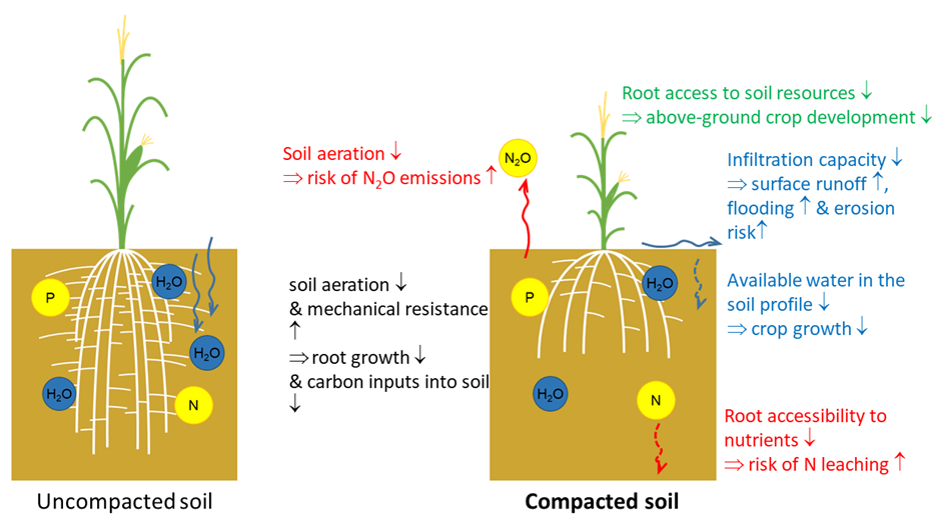Mapping and alleviating soil compaction in a climate-change context
Mapping and alleviating soil compaction in a climate-change context (SoilCompaC)
Soil compaction from farm-vehicle traffic is a major threat to soil productivity and ecological and hydrological soil functioning. SoilCompaC develops techniques for mapping compaction, assesses compaction risks in present and future climate scenarios and quantifies the effects of compaction on soil functions.
It is difficult to determine the extent and severity of soil compaction at a large scale. SoilCompaC will test a range of methods for detecting soil compaction at different scales and estimate the area affected by compaction based on national soil inventory data, where available. The project will also identify management strategies that accelerate the recovery of compacted soils.
The risk of soil compaction is determined by farm-vehicle-induced mechanical stresses and depends largely on soil moisture. SoilCompaC will assess the risk of soil compaction for selected pedoclimatic zones in Europe and for different management strategies and will evaluate how compaction risks change for a projected future climate.
Soil compaction implies a loss of pore volume and the modification of pore structure, with negative impacts on water and gas transport, water storage, soil mechanical resistance and more. SoilCompaC will use modelling approaches to quantify how these changes impact soil functions and processes, including carbon storage, greenhouse-gas emissions, nutrient leaching, water balance and crop productivity.
Publications
Participating organisations
- AU
- BOKU
- BAW
- CSIC-INIA
- vTI
- EMU
- WR
- LAMMC
- TAGEM
- SLU
- AGS







